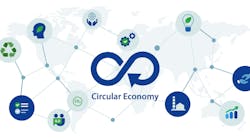Signify has added another arrow to its smart street lighting quiver, acquiring a UK company that specializes in narrowband and unlicensed spectrum, which compared to licensed cellular broadband can be a lower-cost, longer-range, and less power-hungry way to transmit but which handles less data.
The company, Telensa, will continue to sell under its own brand. Telensa claims to have connected over 2 million street lights in over 400 cities. Existing customers include Georgia Power with 369,000 street lights, Essex county in England with 130,000 street lights, and Birmingham, England with 107,000 street lights.
Many of Telensa's installations are with small to midsize cities that use what the company calls its “Ultra Narrow Band” network and its PLANet brand to plan deployment and to track data about street light status.
Telensa also deploys lighting-connected sensors and imaging technology to provide insights on things such as traffic, people, air quality, noise, and events — much like other smart street-lighting systems such as what Signify already offers through its Interact City Internet of Things (IoT) products and services.
With its narrowband approach, Telensa presumably carries less data than broadband but costs less. The Cambridge, England-based company says that its wireless network operates with “minimal data costs” while ranging up to 10 miles.
Signify's acquisition of the previously privately-held firm closed on July 1. Telensa had sales of approximately £11 million (US$15.2M) for the fiscal year ending on March 2021.
“With Telensa, we are expanding our capabilities for smart cities,” a Signify spokesperson told LEDs Magazine. “We are adding a narrowband system to our connected street lighting offering. It enables us to serve even small and mid-sized cities who own and operate a communications network.”
“Together, Signify and Telensa will be able to service the many towns and cities around the world which want to reap the benefits of connected lighting in a cost-efficient way, and bring them into a smart city central management system,” Signify stated in a press release.
Telensa supports the TALQ protocol promoted by the TALQ Consortium to help assure that central management software (CMS) platforms from different vendors will work with network gateway devices from other vendors and provide interoperability in LED street-light centric connected installations that will enable smart city applications.
Signify also supports TALQ, through its Interact City stable of smart street-lighting products and services, which is more geared to broadband than to narrowband. Signify introduced Interact City in March 2018 as part of a wider set of Interact IoT offerings. Prior to that, the company focused its smart street-lighting efforts on its CityTouch control system, such as what it deployed in Los Angeles, which continues to find new uses for the smart technology. CityTouch is now a legacy system at Signify, the spokesperson told LEDs.
The acquisition of Telensa marks at least the second pickup of a smart lighting company by a major lighting vendor in recent months. In April, Sweden's Fagerhult acquired the 80% of Danish outdoor lighting firm Seneco that it did not already own.
MARK HALPER is a contributing editor for LEDs Magazine, and an energy, technology, and business journalist ([email protected]).
♦ Signify's Bodine brand has been been named a finalist in our 2021 Sapphire Awards program for the Emergency SSL Luminaires, Modules, and Drivers category. See who else made the shortlist and register to attend the virtual Strategies in Light event to cheer on the winners on Aug. 24, 2021. ♦
For up-to-the-minute LED and SSL updates, why not follow us on Twitter? You’ll find curated content and commentary, as well as information on industry events, webcasts, and surveys on our LinkedIn Company Page and our Facebook page.






